Ryûsuke Hamaguchi, Christopher Nolan, Spike Lee, Chantal Akerman, Theo Angelopoulos, Lynne Ramsay, Tsai Ming-liang, Michael Haneke, Lee Chang-dong, Terence Davies, Shōhei Imamura, Bi Gan, Hou Hsiao-hsien, Jia Zhangke, Wong Kar-wai, Yorgos Lanthimos, Denis Villleneuve, Céline Sciamma, Guillermo del Toro, Kelly Reichardt. Those are just a few of the filmmakers introduced to New York audiences at New Directors/New Films over the last half-century across over 1,100 premieres.
Now returning for its 53rd edition at Film at Lincoln Center and The Museum of Modern Art from April 3-14, this year’s lineup features 35 new films, presenting prizewinners from Berlin, Cannes, Locarno, Sarajevo, and Sundance film festivals. Ahead of the festival kicking off next week, we’ve gathered fourteen films to see, and one can explore the full lineup and schedule here.
All, or Nothing at All (Jiajun “Oscar” Zhang)
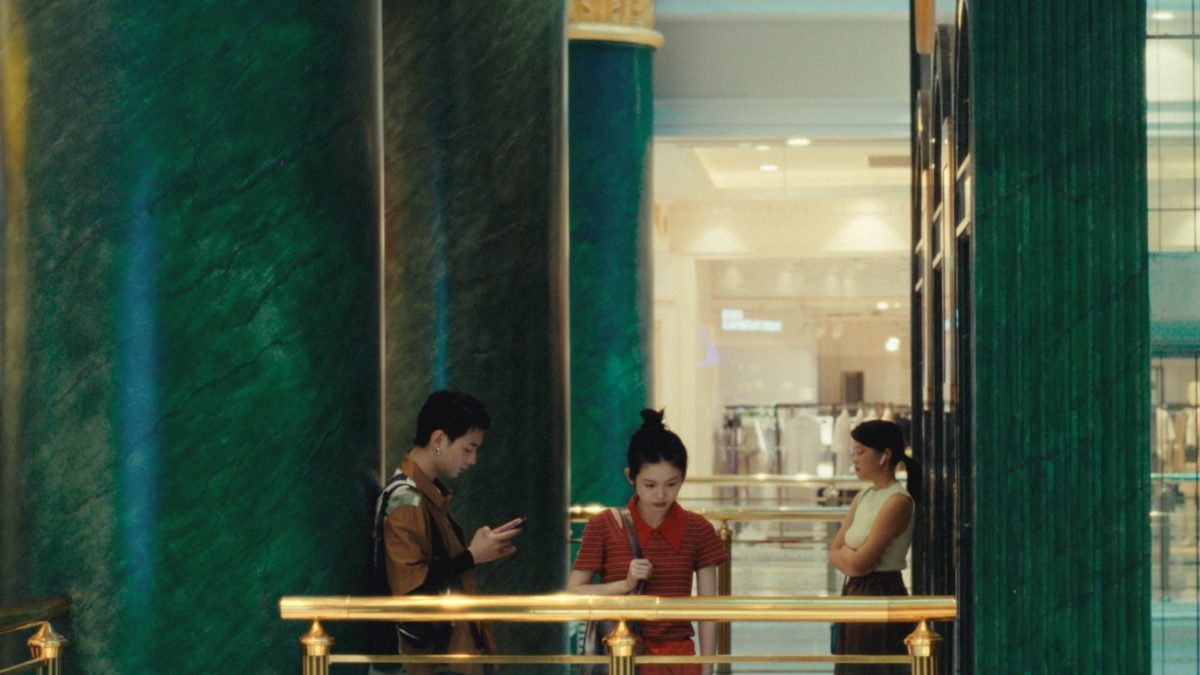
In All, or Nothing at all, director Jiajun “Oscar” Zhang employs an experimental structure that splits the movie into halves. The same cast plays two sides of narratives that occasionally intersect. The movie takes place largely in the Global Harbor shopping mall, stores and corridors of which are backdrops to stories about mistimed relationships. Some are ending; some are stalled on escalators and parking ramps. The two leads are Lan Tian (An Yu), either a dance instructor or a filmmaker, and Wu Yoyo (Chen Xiaoyi), a clerk or a stalker. The best performance is by Liang Cuishan as Perry, a single mother in one part and a store manager in another. The film is screened in versions which reverse the two parts. – Daniel E.
Blackbird Blackbird Blackberry (Elene Naveriani)
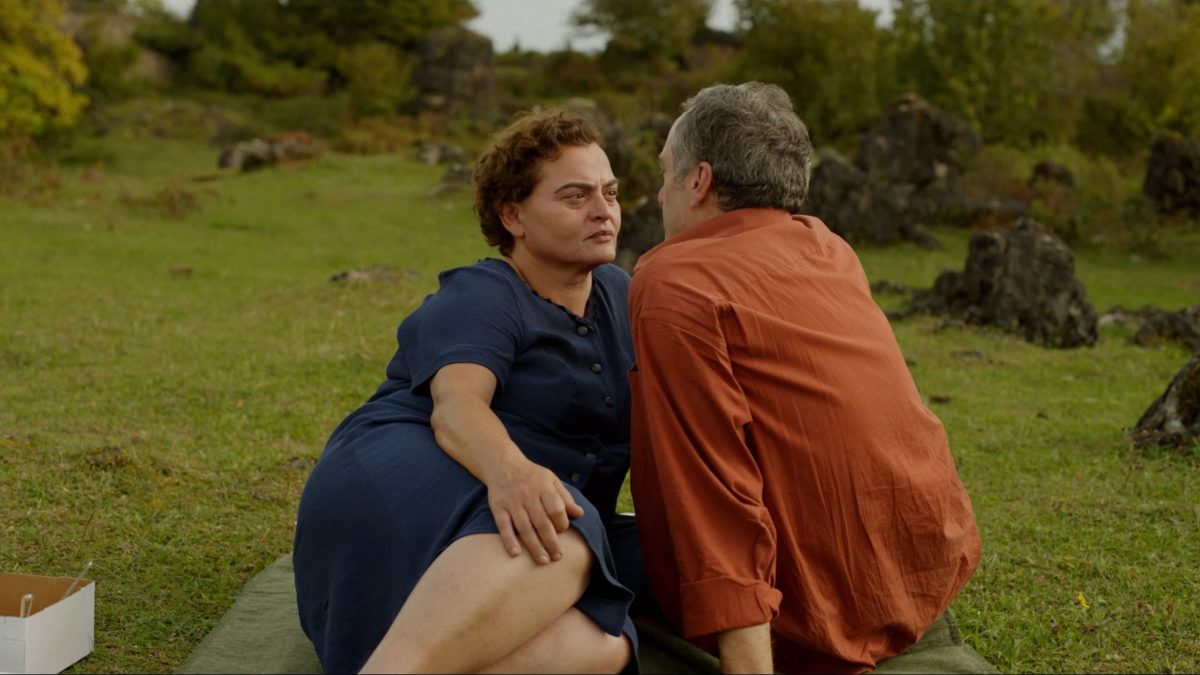
Georgian cinema continues to show thriving signs of life in Blackbird Blackbird Blackberry, a film about a contently independent woman who is faced with the thrills and spills of companionship for the first time. A breakout at Directors’ Fortnight at Cannes earlier this year and a deserved winner, last week, of both best film and actress at the Sarajevo Film Festival, Blackbird is the latest from Elene Naveriani, a 38-year-old director who co-wrote the script with the writer and feminist activist Tamta Melashvili. From that collaboration springs an unlikely tale about the shock of attraction, about how bodies appear depending on how we see them and who’s looking, and about the joys of touch and solitude and whether or not they need be mutually exclusive. – Rory O. (full review)
The Day I Met You (André Novais Oliveira)
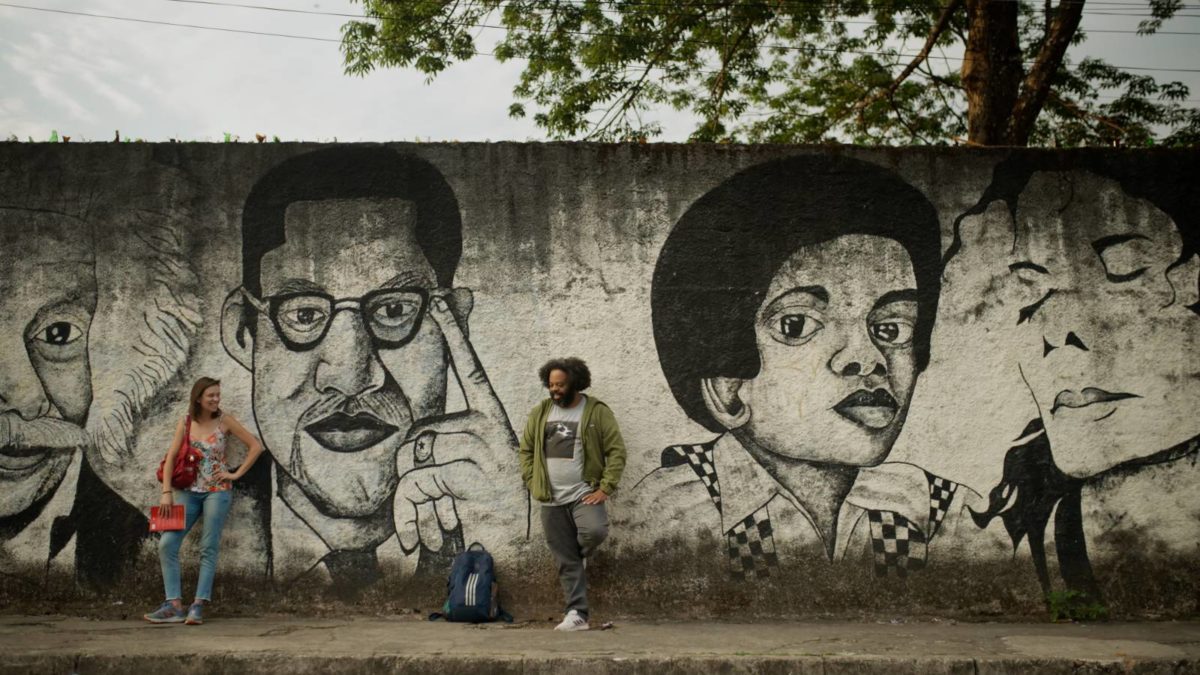
A Brazilian slacker dramedy with a pensive bent, The Day I Met You marks director André Novais Oliveira’s return to New Directors/New Films following 2018’s Long Way Home. Furthering his attuned eye for capturing the pacing of everyday life––with a special focus on commutes at times tranquil and hurried––his latest tale follows Zeca (Renato Novaes), a lackadaisical school librarian who can’t seem to jumpstart his day, resulting in getting canned. He then segues to a rendezvous with colleague Louisa (Grace Passô), in which they discuss the ups and downs of life, with special attention to mental health. With a genuine heart for his characters and the places they occupy, The Day I Met You is an emotionally generous portrait of stasis. – Jordan R.
A Different Man (Aaron Schimberg)
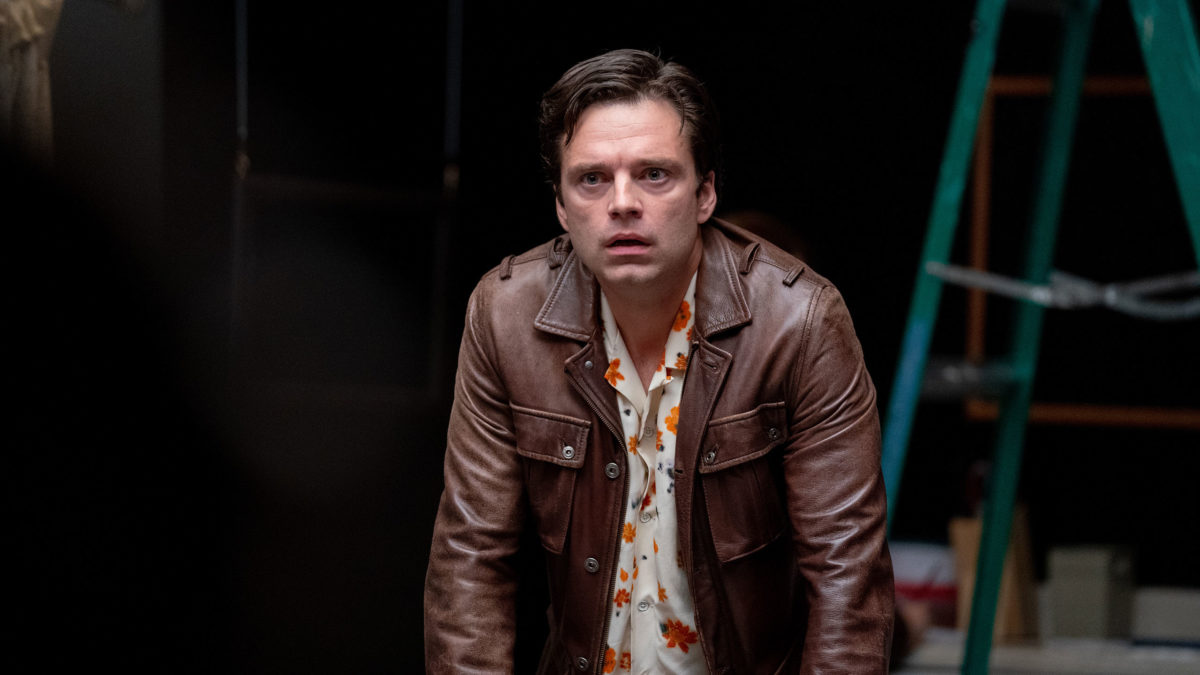
There are a lot of ways A Different Man could go and a lot of things it could be. Aaron Schimberg’s uniquely uncomfortable, uncomfortably unique feature sometimes plays as a reverse-Frankenstein medical horror, a tragic life-imitates-art satire, and a spiraling relationship drama. To its ambitious and distinct credit, it attempts packaging them all into ominous-sounding harmony, as if Charlie Kauffman’s surrealist Escher concoctions became a Twilight Zone episode modeled after David Lynch’s Elephant Man or Beauty and the Beast. It’s a dark, hilarious, and deeply unsettling portrait of a disfigured man that’s also an unflinching mirror of a looks-focused industry. – Jake K. (full review)
Dreaming & Dying (Nelson Yeo)
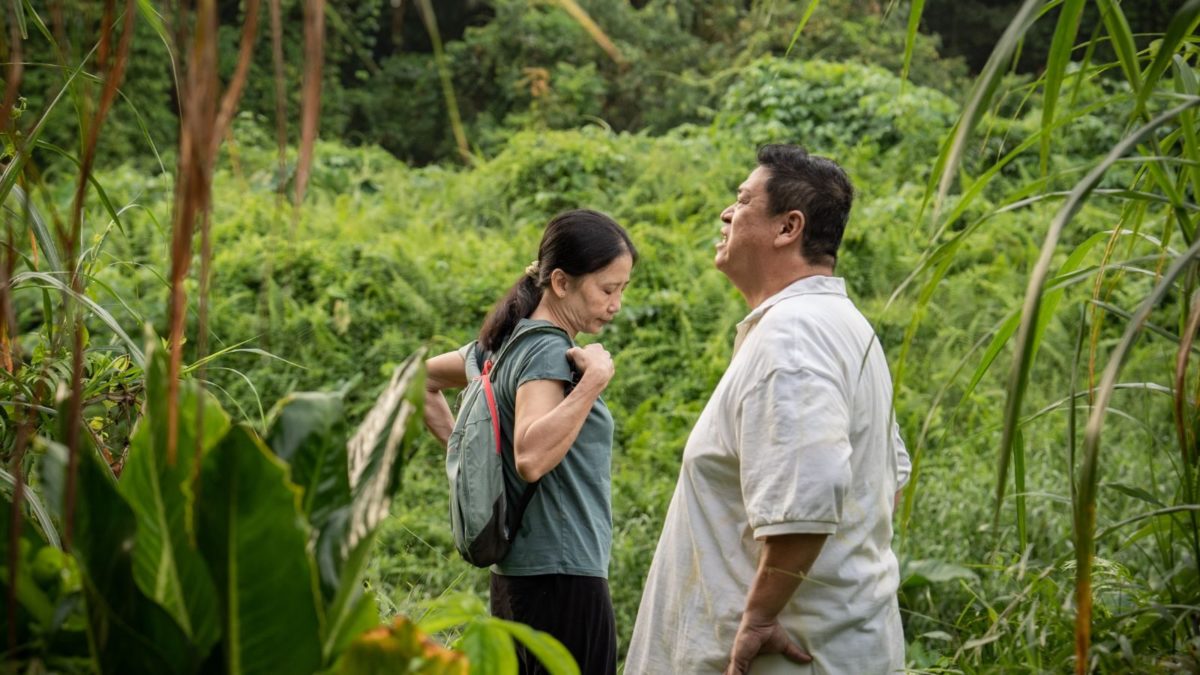
Ever seen a man have romantic tension with a fish? You’ll get that and more in Nelson Yeo’s Dreaming & Dying, a languid, sun-soaked story of unrequited love. Or mermaids. Or both? The narrative is, well, dreamlike, so it’s hard to be sure. This is a film about feelings––evoking them, probing them, burying them. With just three performers (Peter Yu, Doreen Toh and Kelvin Ho) comprising its entire cast, Dreaming & Dying is a small film with big ideas. And you’ve got to love it when a director drops the opening titles 20 minutes in. – Lena W.
Explanation for Everything (Gábor Reisz)
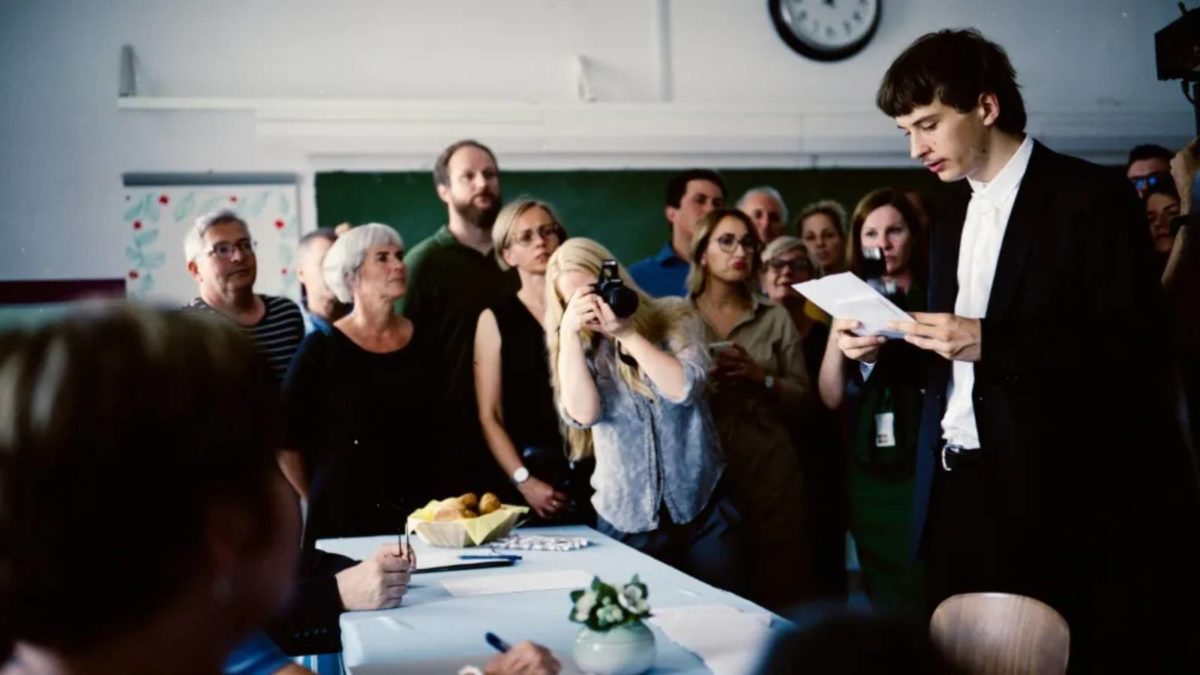
Politics are the enemy in Gábor Reisz’s Explanation for Everything, an ambitious, entertaining effort from the Hungarian filmmaker to address the crisis of divisiveness in his country. Filmed with little care for catering to audiences outside Hungary who may not grasp its political reference points––a welcome choice that lets viewers pick up on things as the film proceeds––Reisz gradually sets the scene for one small, key moment that snowballs into a national scandal. Starting out as an awkward comedy, the film builds itself up into one long, exasperated scream at the absurdity of how almost everything can be weaponized into political issues. – C.J. P. (full review)
Good One (India Donaldson)
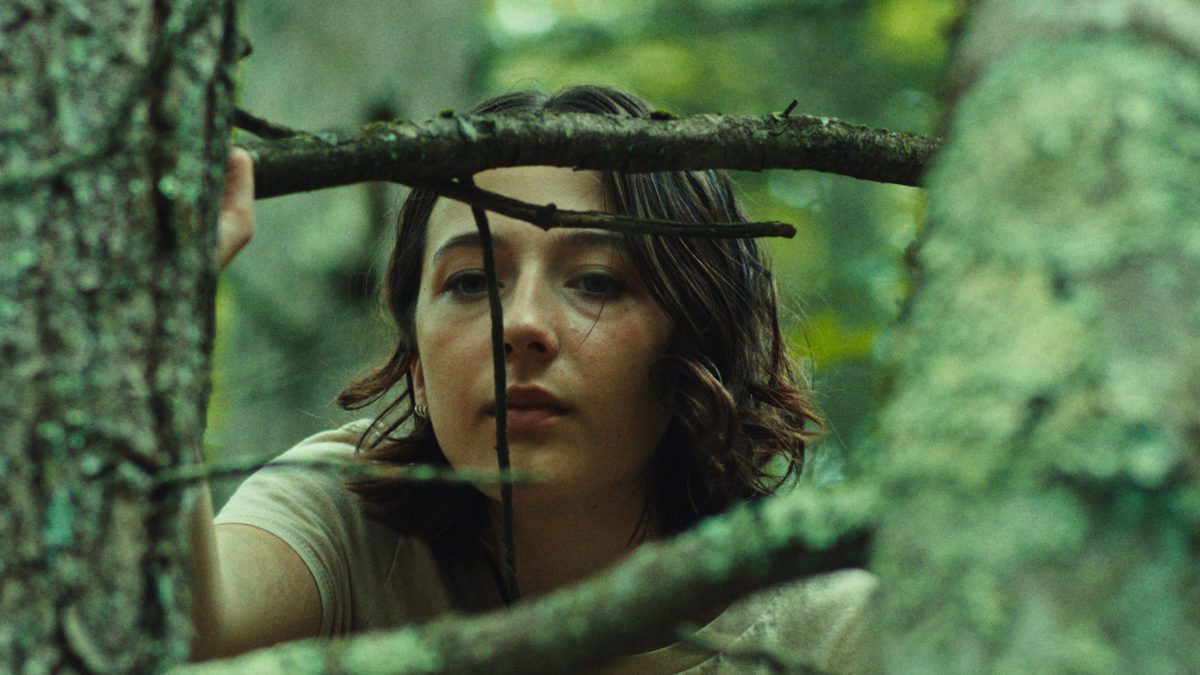
It’s been nearly two decades since Kelly Reichardt’s Old Joy showed how the wilderness can be an open canvas to explore the breaking points of male friendship and reckoning with a midlife crisis. While those emotional quandaries are evergreen, it’s appropriate timing to bring an entirely new element to this conceit. India Donaldson’s carefully observed, refreshingly patient, beautifully rendered debut feature Good One shifts the perspective, concerning a 17-year-old girl who embarks on a camping trip in the Catskills with her father and his best friend. Through an accumulation of minute details and uneasy glances, the drama becomes a portrait of increasingly crossed boundaries leading to an ultimate breaking point. – Jordan R. (full review)
Grace (Ilya Povolotsky)
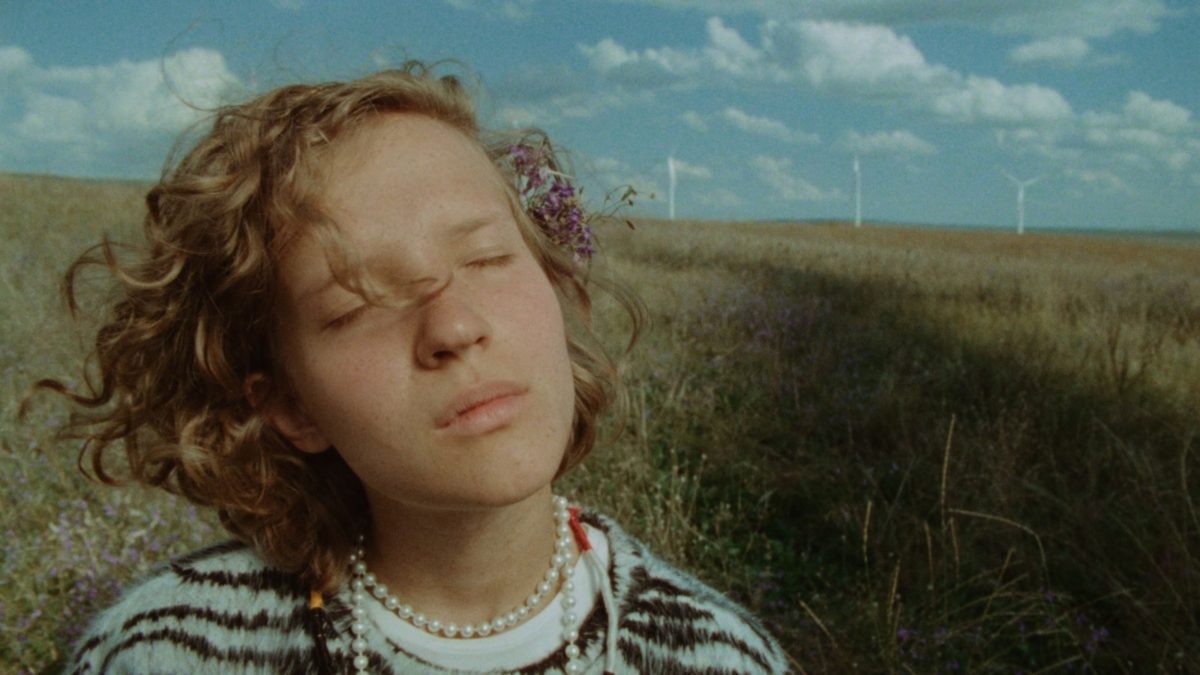
Settle in for long takes, sparse dialogue, and exquisite Kodak footage from cinematographer Nikolai Zheludovich as Grace gets you under its spell. Ilya Povolotsky’s ambitious second feature is as lush as it is lilting, interspersing the give and take of a strained father-daughter relationship with breathtaking scenery from the Russian countryside. Maria Lukyanova is enchanting in her debut film role as the daughter, a teenager looking for more than what the van she and her father live out of has to offer. As she and her father (Gela Chitava) drive toward the Barents Sea, their off-the-grid cinephile lifestyle––and their relationship––grows more untenable. – Lena W.
Intercepted (Oksana Karpovych)
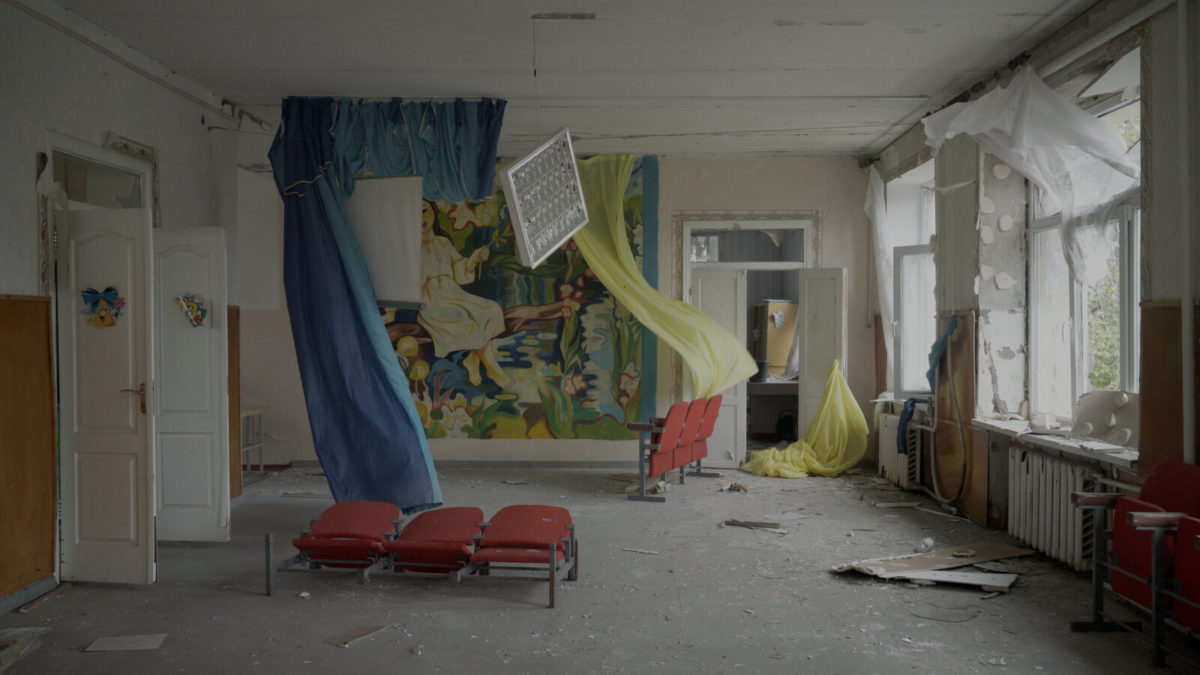
With Putin’s stronghold on the media communications out of Russia, it can be hard to get a true sense of how demoralized their armed forces are over Ukraine’s formidable defense of the unwarranted attack. Two years after the invasion, a new documentary publicizes private recordings from Russian intercepted by the Security Service of Ukraine. With a formally precise approach capturing the devastating warpath in Ukraine, Oksana Karpovyc’s Intercepted takes an unprecedented dive into the psyche of the attacking forces. We listen to stories of the mass murder of Ukrainian civilians, how they’ve succumbed to eating dogs, and are so disorganized they are injuring their own forces as the family back home feeds fake propaganda about nuclear stockpiles and COVID origins. It’s a stark, uncompromising documentary that shows how life must go on in Ukraine while also confirming that, even when the war eventually ends, a mutual hatred will endure for generations. – Jordan R.
Lost Country (Vladimir Perišić)
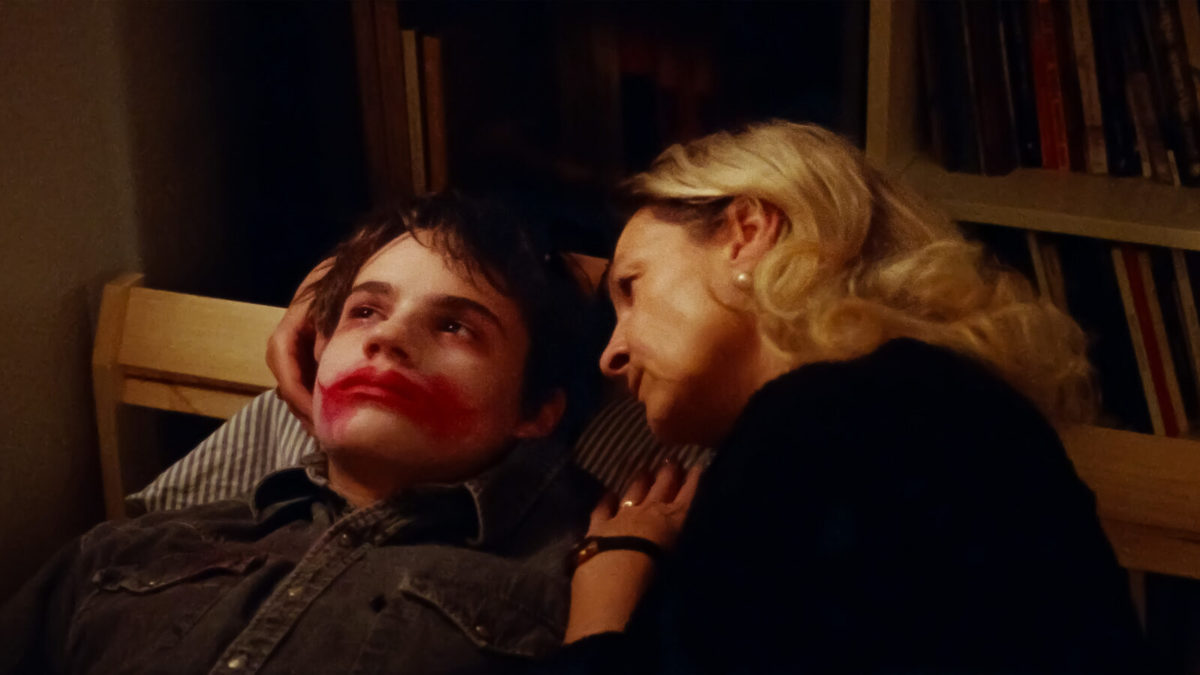
The first feature by Vladimir Perišić since 2009’s Ordinary People, Lost Country takes place in Serbia circa 1996, a country verging on collapse during Slobodan Milošević’s regime. Building from an amazing reconstruction of period classrooms, courtyards, and chaotic demonstrations, Perišić reveals details in slow drips, focusing on characters’ faces instead of their actions or words. He has a great lead in Jovan Ginić, playing a 15-year-old whose dangerous attraction to his mother Marklena (Jasna Đuričić) blinds him to the fact that she is a key player in a corrupt government. – Daniel E.
Meezan (Shahab Mihandoust)
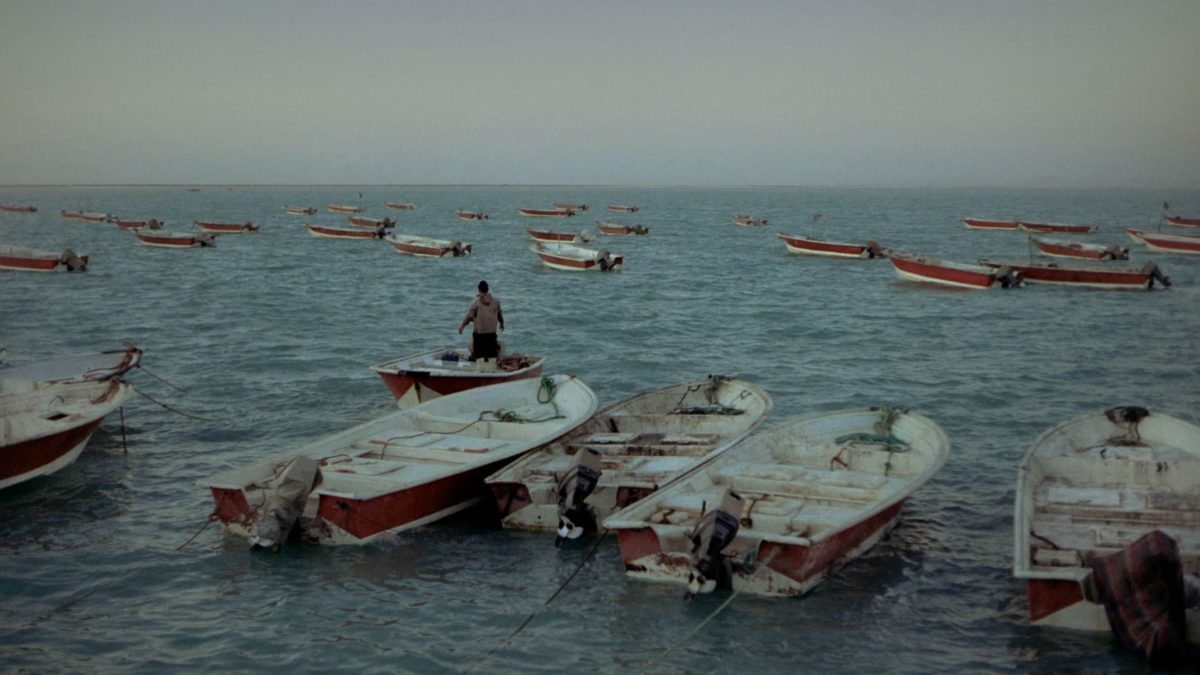
Meezan really takes off in its final third. But its first two sections, about men working on fishing boats off the coast of Iran’s Khuzestan province, constitute a far more ordinary documentary. Meezan makes a big leap forward when it moves into a factory where women clean shrimp. Shahab Mihandoust makes hypnotic images from frantic, mind-numbing labor without losing sight of its toll. Additionally, Ernst Karel’s sound design creates a vibrant world of offscreen noise and chatter. – Steve E.
Otro Sol (Francisco Rodríguez Teare)
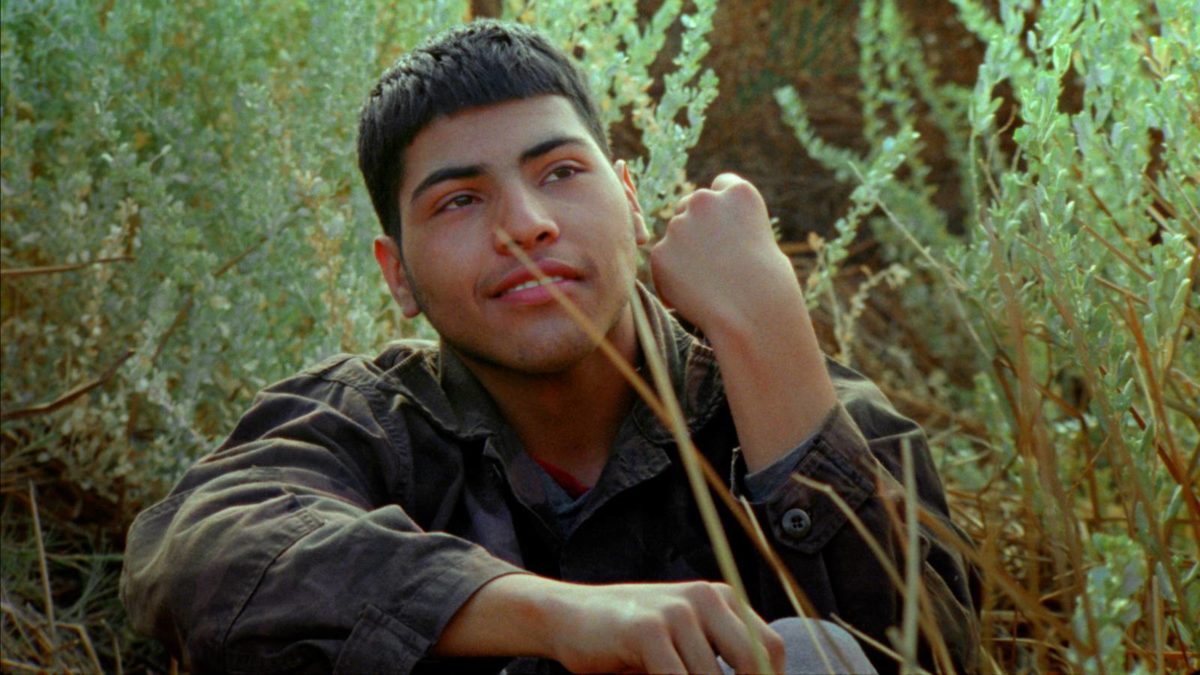
In Otro Sol, writer-director Francisco Rodriguez Teare’s story keeps circling in on itself, jumbling characters and facts until it’s impossible to determine what is true. Two misfits leave Chile’s Atacama Desert to re-enact the theft of priceless heirlooms from a cathedral in Cadiz, Spain. But did the original crime even occur? Teare populates the story with fascinating liars and thieves fond of poetic statements like “hurricanes blow out the lights in my brain.” The real stars of Otro Sol are its locations, from a shantytown built on a brown sand beach to the terraces and alleyways around Cádiz Cathedral. – Daniel E.
The Permanent Picture (Laures Ferrés)
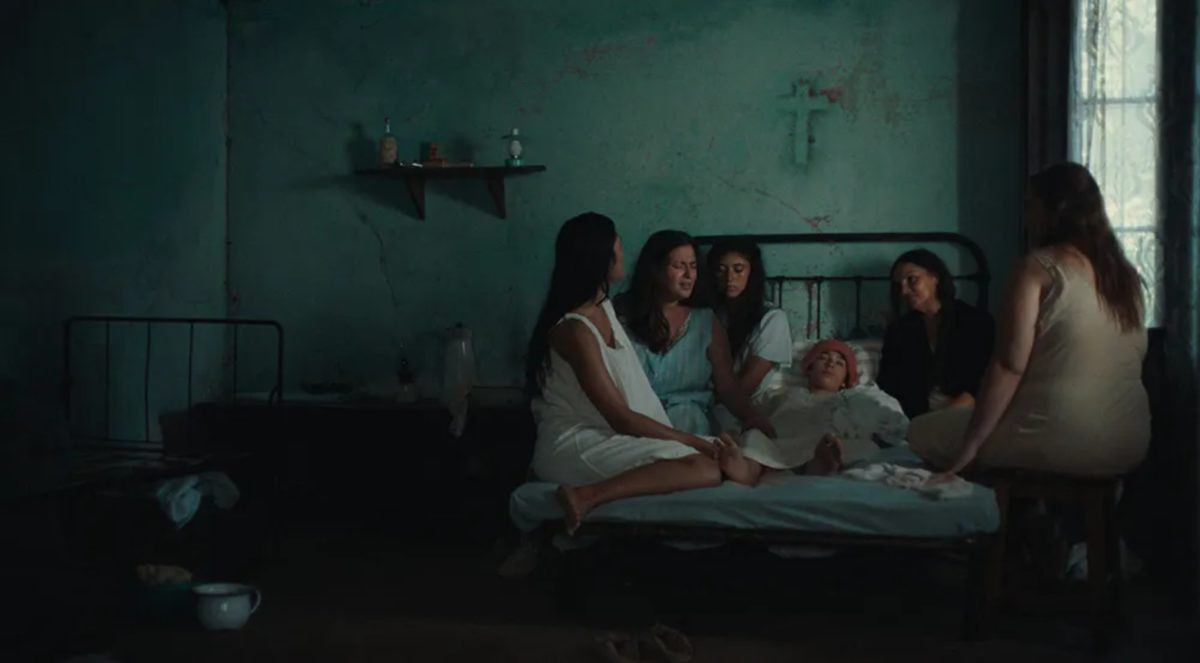
At the beginning of The Permanent Picture a teenage girl gives birth, gives up her baby, and disappears. Then, 50 years later, a casting director discovers her on the street selling homemade perfume. That, more or less, is the gist of Laures Ferrés’ shapeshifting debut, an exploration of diasporic anxieties in which shades of the director’s politics and personal history gradually emerge with a wink and a smile. The two women, as anyone watching will immediately realize, are more connected than they know, yet this is not a film that pivots on any big reveals. Ferrés is too curious for that, more concerned with the peculiarities of human faces or how anyone might begin to decipher such a connection. – Rory O. (full review)
The Rim (Alberto Gracia)
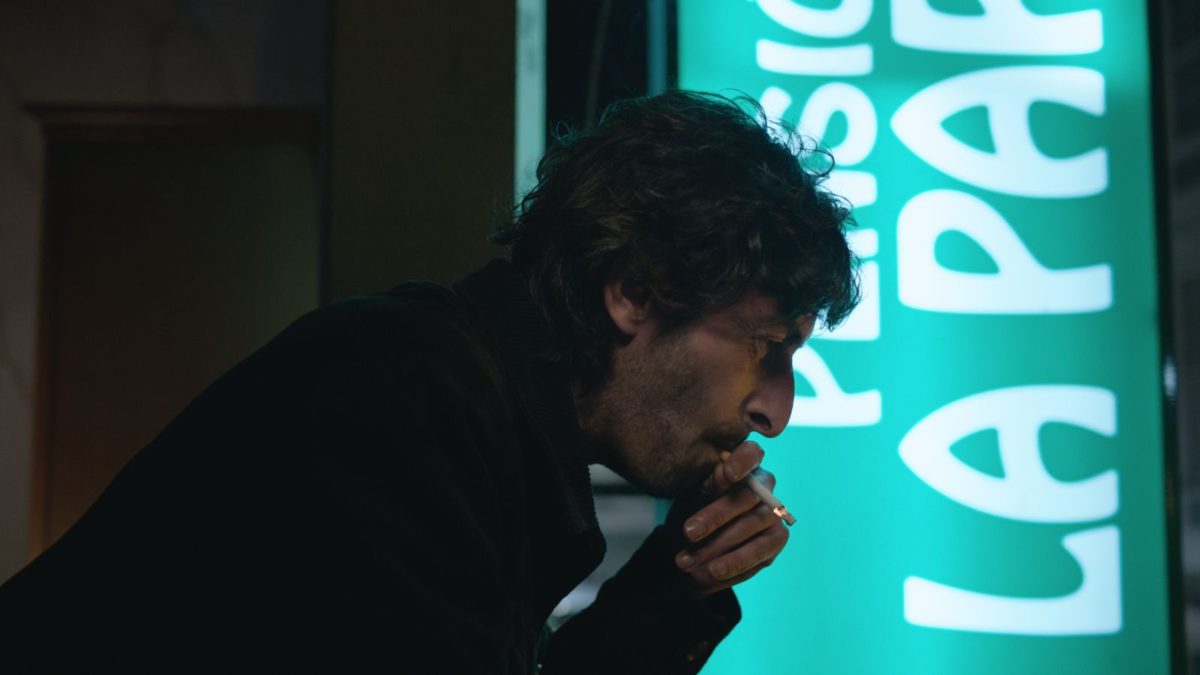
The Rim is a piece of enigmatic surrealism that evokes both Jose Saramago’s novels and the Greek Weird Wave while never forgetting characters’ struggles with poverty and isolation. Set in the port city of Ferrol in Spain’s Galicia region, it follows Damian (Alfonso Miguez), a man who struggles to better his life by appearing on a TV game show. Instead he gets mistaken for Cosme (played by the director), a guide for the blind who kills himself in the first scene. Where many filmmakers would go for neo-neo-realism to depict this milieu, Gracia has crafted an enticing puzzle––one that may leave you confused but is imaginative enough not to risk boredom. – Steve E.
New Directors/New Films takes place April 3-14 at Film at Lincoln Center and The Museum of Modern Art.
